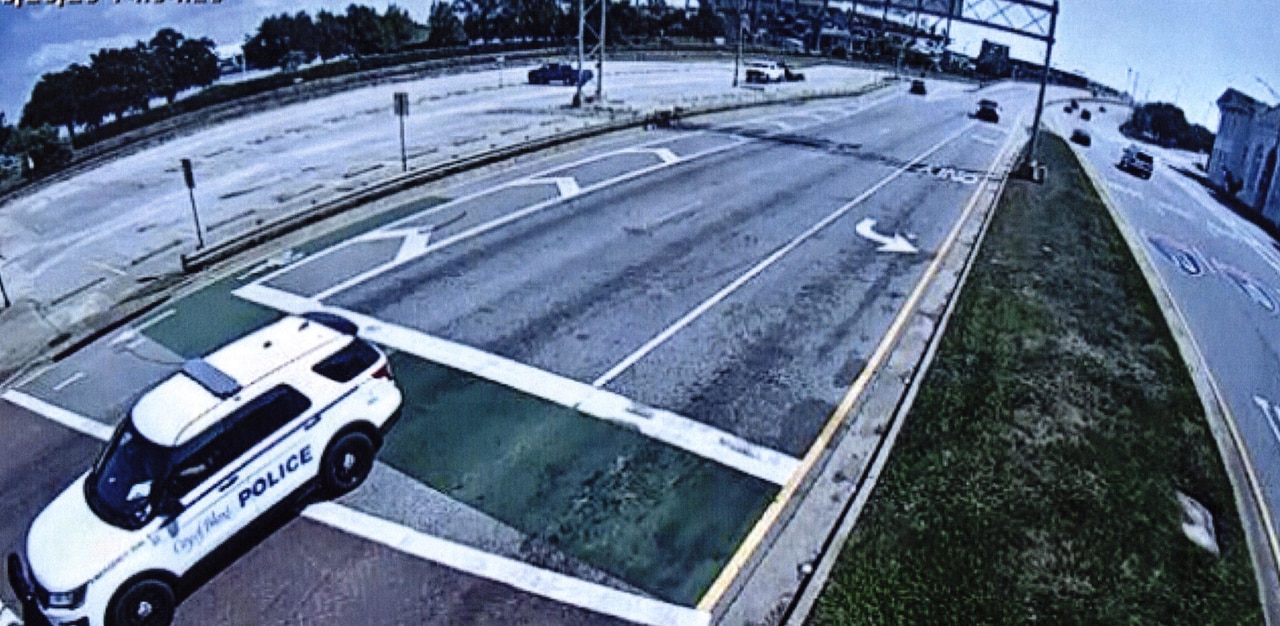Mobile officials say Biloxi police are driving homeless people to Mobile and leaving them
The City of Mobile is accusing Biloxi (Miss.) police of using intimidation, fear, fraud and deception to convince homeless people in the Biloxi area to be driven by police vehicle to Mobile, where they are then dropped off near a homeless shelter.
In a cease-and-desist letter dated Oct. 5 to Biloxi Mayor Andrew “FoFo” Gilich, Mobile Chief of Staff James Barber claims the practice has been ongoing for several months and provides evidence of Biloxi police involvement, including one photograph of a Biloxi police SUV passing a traffic light camera in Mobile.
Barber says there has been an “influx” of homeless people and an increasing number of calls for police “associated with that ever-increasing number.” He said the City conducted an investigation which included interviews with some of the homeless, as well as traffic camera photographs of Biloxi police vehicles in Mobile.
“Based upon what we have ascertained, the Biloxi Police Department, utilizing uniformed police officers and city vehicles, is transporting homeless individuals from Biloxi, MS to Mobile, AL,” Barber wrote. “Furthermore, the techniques utilized to coerce the individuals to travel range from intimidation and fear to fraud and deception.”
Gilich, however, responded Friday to the allegations, claiming Barber is “misinformed.”
In a letter to Barber, Gilich said the City of Biloxi has worked with two Mobile shelters which “offer homeless persons numerous resources not available in our community. These shelters have been in coordination and contact with our police department and any individuals wanting to go to the Mobile shelters have signed consent forms.”
Gilich said there have been fewer than 20 people transported to the Mobile shelters since August 2022 and that only two people have been offered transportation to the shelters during 2023.
Barber’s letter claims that the interviews with homeless people provided similar descriptions of events, each of which began with an interaction with Biloxi police.
“During the exchange, the officer, while in uniform and acting under his apparent authority, implies to the homeless individual that they are in violation of one or more criminal statutes,” Barber wrote. “The officer (further) explains the City of Biloxi does not have adequate social services programs to assist the homeless.
“At that point, the officer insinuates the individual has a choice of either going to jail or being transported to Mobile, AL. Although an actual threat of arrest is never articulated, the clear connotation of the exchange leaves the homeless individual with no alternative but to be transported to Mobile or the possibility they may be arrested. Once the homeless individual agrees to go to Mobile, the officer transports them in their city vehicle.”
Another tactic used by Biloxi police, Barber wrote, is a promise of help. If the homeless individual accepts the offer of help, he/she is driven by Biloxi police vehicle to Mobile and dropped off in the area of a homeless shelter.
During one of the interviews, a homeless person said the Biloxi officer was “bragging to a co-worker he had transported over 50 people to Mobile,” Barber wrote.
The most recent instance occurred on Sept. 26, according to Barber. The homeless person involved was interviewed and provided the date, time and location where he was dropped off. Attached to the letter was a photograph of a Biloxi police vehicle in Mobile in the same location at the same time provided by the homeless person.
Barber notes the actions of Biloxi police are a violation of Constitutional rights, adding that “it is a crime for a person acting under color of law to willfully deprive a person of a right or privilege protected by the Constitution or laws of the United States.”
Color of law includes acts by federal, state and local officials, and can also include acts beyond the scope of that official’s legal authority.
In his response, Gilich wrote that any suggestion of wrongdoing by Biloxi police is “incorrect.”
“If you would like to discuss details further, we welcome an open discussion with your administration and law enforcement officers,” wrote Gilich.
Barber’s letter requested the City of Biloxi end the practice, adding that should it continue, the City of Mobile would be “forced to seek alternative actions, including notification of the Department of Justice and the Federal Bureau of Investigation.”
